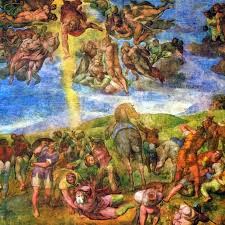Pope Benedict XVI gave a General Audience on Saints Priscilla and Aquila, spouses, in February of 2007:
“Based on the information in our possession, this married couple played a very active role in the post-Paschal origins of the Church.
“When Paul wrote the First Letter to the Corinthians from Ephesus, together with his own greeting he explicitly sent those of ‘Aquila and Prisca, together with the church in their house’ (16: 19).
“Hence, we come to know the most important role that this couple played in the environment of the primitive Church: that of welcoming in their own house the group of local Christians when they gathered to listen to the Word of God and to celebrate the Eucharist.
“In the house of Aquila and Priscilla, therefore, the Church gathered, the convocation of Christ, which celebrates here the Sacred Mysteries.
“This couple in particular demonstrates how important the action of Christian spouses is. When they are supported by the faith and by a strong spirituality, their courageous commitment for the Church and in the Church becomes natural. The daily sharing of their life prolongs and in some way is sublimated in the assuming of a common responsibility in favour of the Mystical Body of Christ, even if just a little part of it. Thus it was in the first generation and thus it will often be.
“A further lesson we cannot neglect to draw from their example: every home can transform itself into a little church. Not only in the sense that in them must reign the typical Christian love made of altruism and of reciprocal care, but still more in the sense that the whole of family life, based on faith, is called to revolve around the singular lordship of Jesus Christ.”
Sts. Priscilla and Aquila, pray for us!





